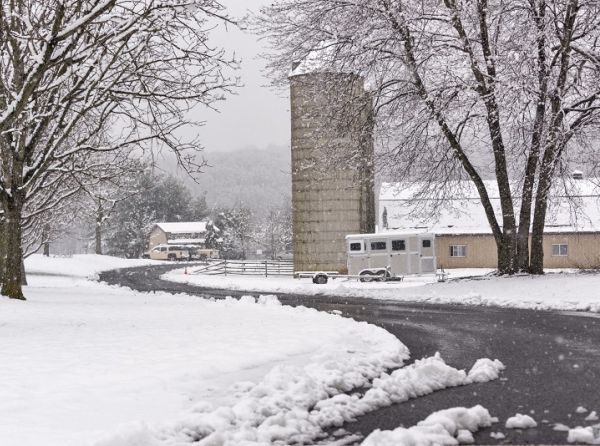By Tania Millen, BSc, MJ
“There’s huge demand in Canada’s horse industry right now for grooms and caretakers,” says Gayle Ecker, Director of Equine Guelph at the University of Guelph in Ontario.
Stables across the country are searching for staff for labour-intensive barn jobs. Although some jobs may require formal training, the horse industry is one of few industries where opportunities abound for those who are willing, learn quickly, and work hard.
Canada’s horse industry is very broad and many types of jobs are available. According to a report commissioned by Equestrian Canada, Canada’s equine sector provided almost 71,000 full-time equivalent jobs in 2022. Businesses that produce products and services which horses, riders, owners, and Western lifestyle enthusiasts demand, require staff with equestrian knowledge. Burgeoning entrepreneurs continue to create and sell custom products and services to horse owners and riders. It’s common for those making a living in the horse industry to wear multiple hats, too. One person may care for horses, teach lessons, make and sell a unique product, while offering horse training or transportation services.
Those multiple roles require a broad skill set. Horse skills and knowledge are a basic requirement. Business savvy is helpful too, along with an understanding of the larger equine industry. Entrepreneurial skills such as providing exceptional customer service, marketing, keeping accounts, and networking can help grow income opportunities. Job seekers who are professional, have communication skills, know how to handle horses, plus have knowledge of horse care and how equine facilities operate, are in demand.
However, as Canada’s population becomes more urban and horses are no longer part of everyday life, horse knowledge is harder to come by. Employers may need to get creative, perhaps offering internships to fill the educational gap while assessing employment “fit” of potential staff. For those who’ve dreamt of working with horses, this could be their opportunity to chase those dreams — a potential win for all concerned.
One way or another, jobs caring for professional and recreational horses need to be filled and there’s opportunity for those keen to embrace the industry.
For more information, check out the jobs feature in Canada’s Equine Guide 2024, available for purchase on this website.
Related: Equestrian Canada's 2023 Study - Canada’s Vibrant Horse Industry
Related: New Data About Canada’s $8.69 Billion Horse Industry Can Help Businesses Target Clientele
Main Photo: iStock/LottaVess




























